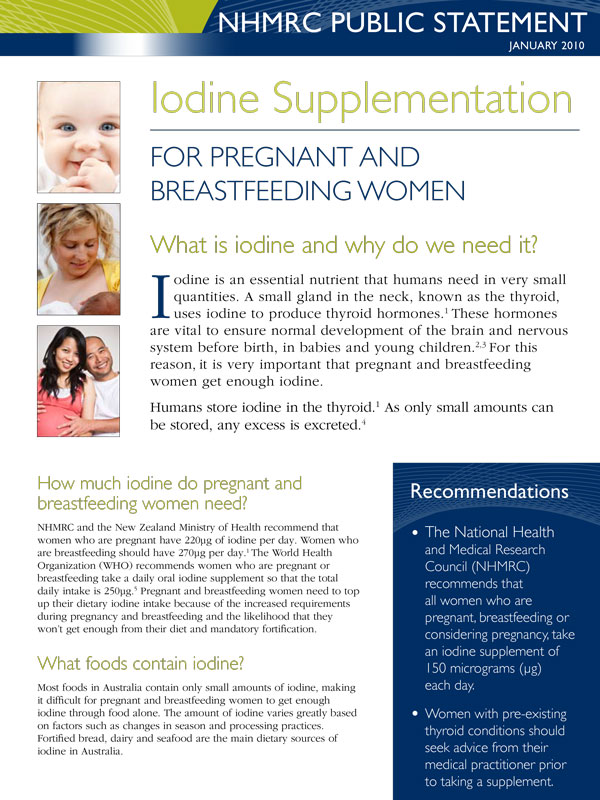 There have been reports in the media recently linking a lack of Iodine in pregnant and breastfeeding women’s diets to intellectual problems in their children. Several studies have shown a re-emergence of mild to moderate Iodine deficiency in school children, healthy adults and pregnant women. This was identified in Tasmania, Victoria, New South Wales and New Zealand. Over a third of the world’s population live in areas where there is Iodine deficiency so this not an uncommon problem. However, Iodine is essential for the Thyroid to function properly.
There have been reports in the media recently linking a lack of Iodine in pregnant and breastfeeding women’s diets to intellectual problems in their children. Several studies have shown a re-emergence of mild to moderate Iodine deficiency in school children, healthy adults and pregnant women. This was identified in Tasmania, Victoria, New South Wales and New Zealand. Over a third of the world’s population live in areas where there is Iodine deficiency so this not an uncommon problem. However, Iodine is essential for the Thyroid to function properly.
Iodine in Pregnancy
What happens if the fetus doesn’t get enough thyroid hormone, particularly in the first half of the pregnancy? It is understood that some damage to the brain may occur. This usually is evident in a lower IQ, learning difficulties, reading difficulties and hearing difficulties. If the deficiency continues in infanthood and early childhood then these problems can be compounded.
The average adult needs about 150 micrograms of Iodine a day. However, pregnant and breastfeeding women require twice as much to meet the needs of their growing baby. Women can get this Iodine most effectively by using iodised salt rather than standard salt in food preparation. This is readily available in supermarkets. Milk and seafood are also high in Iodine. Most pregnancy and lactation vitamin supplements have Iodine in them. Therefore, if women have concerns about their Iodine intake during pregnancy and when breastfeeding they can take one of these. Supplements of 150 micrograms are recommended.
Recommendations
NHMRC public statement January 2010 |
To read more visit the National Health and Medical Research Councils website – Iodine Supplementation for Pregnant and Breastfeeding Women



Recent Comments